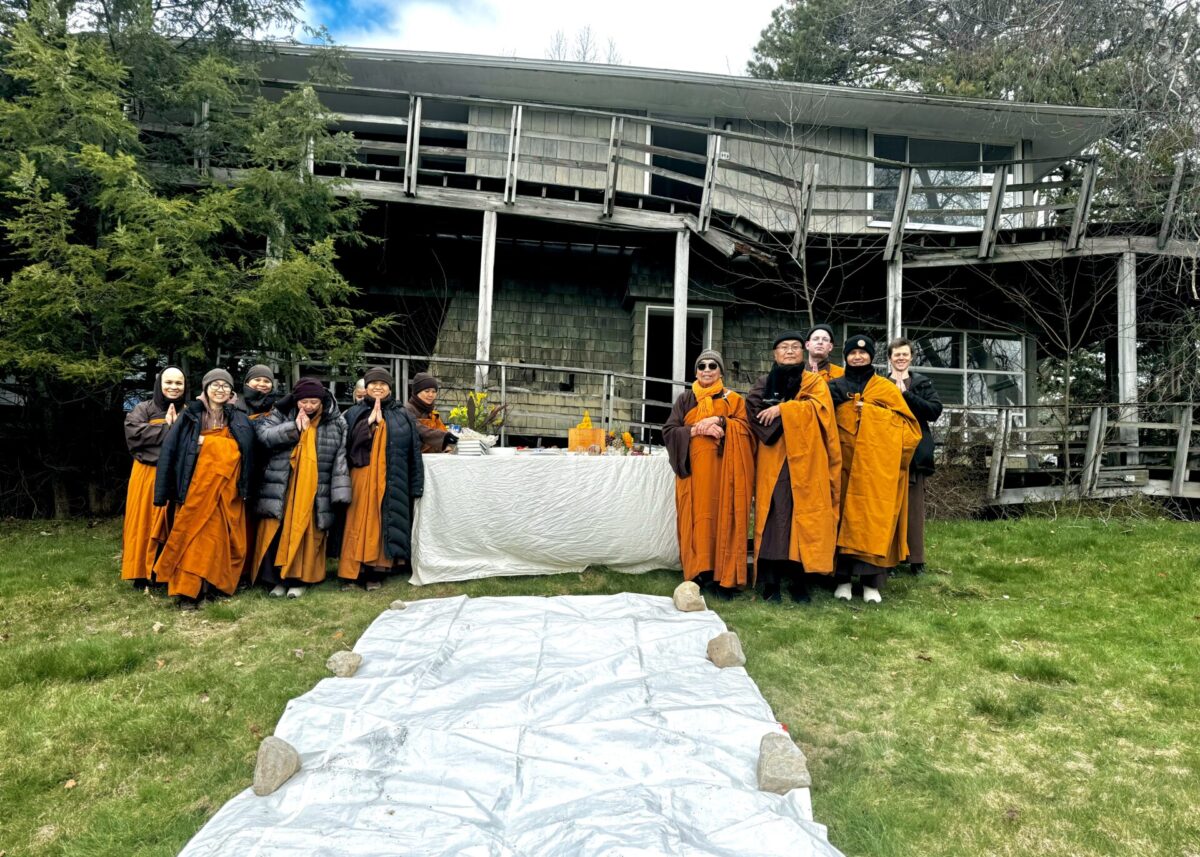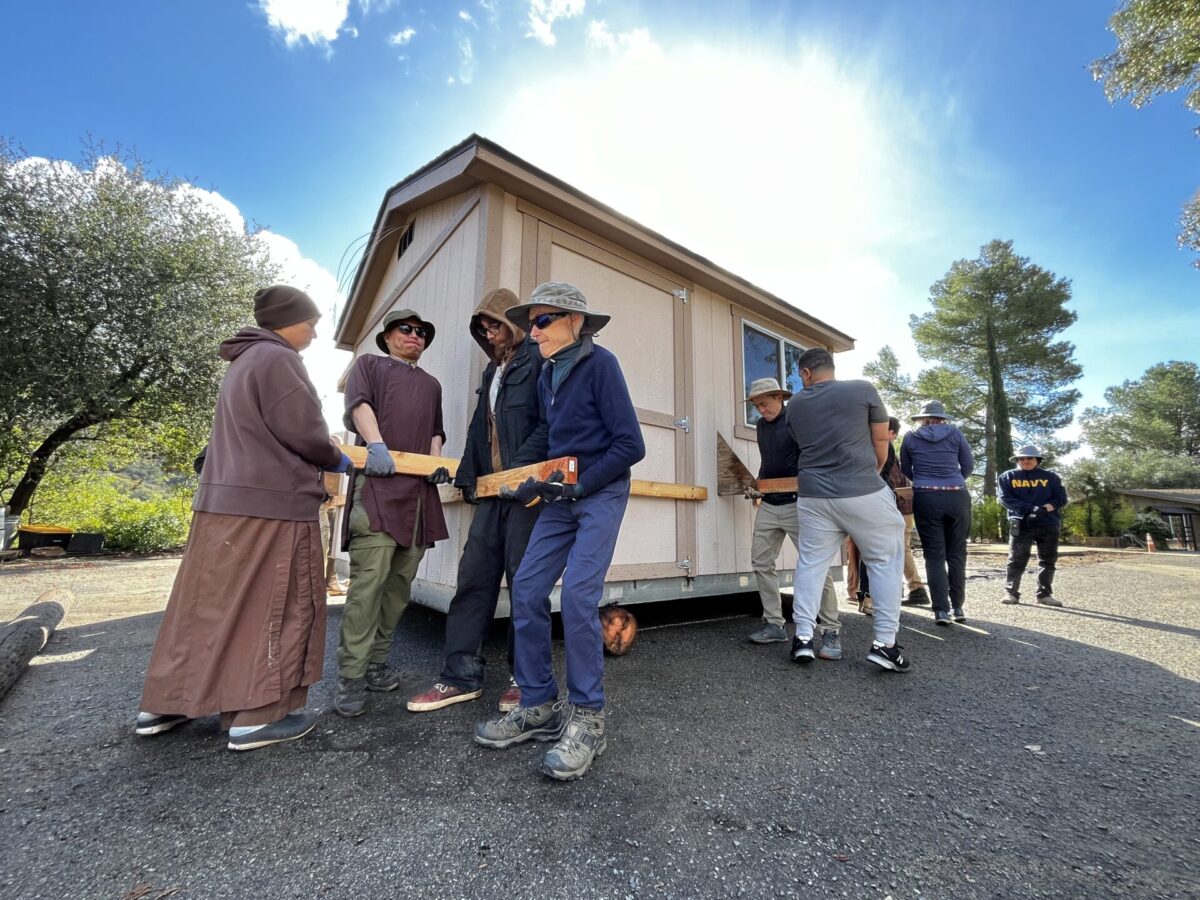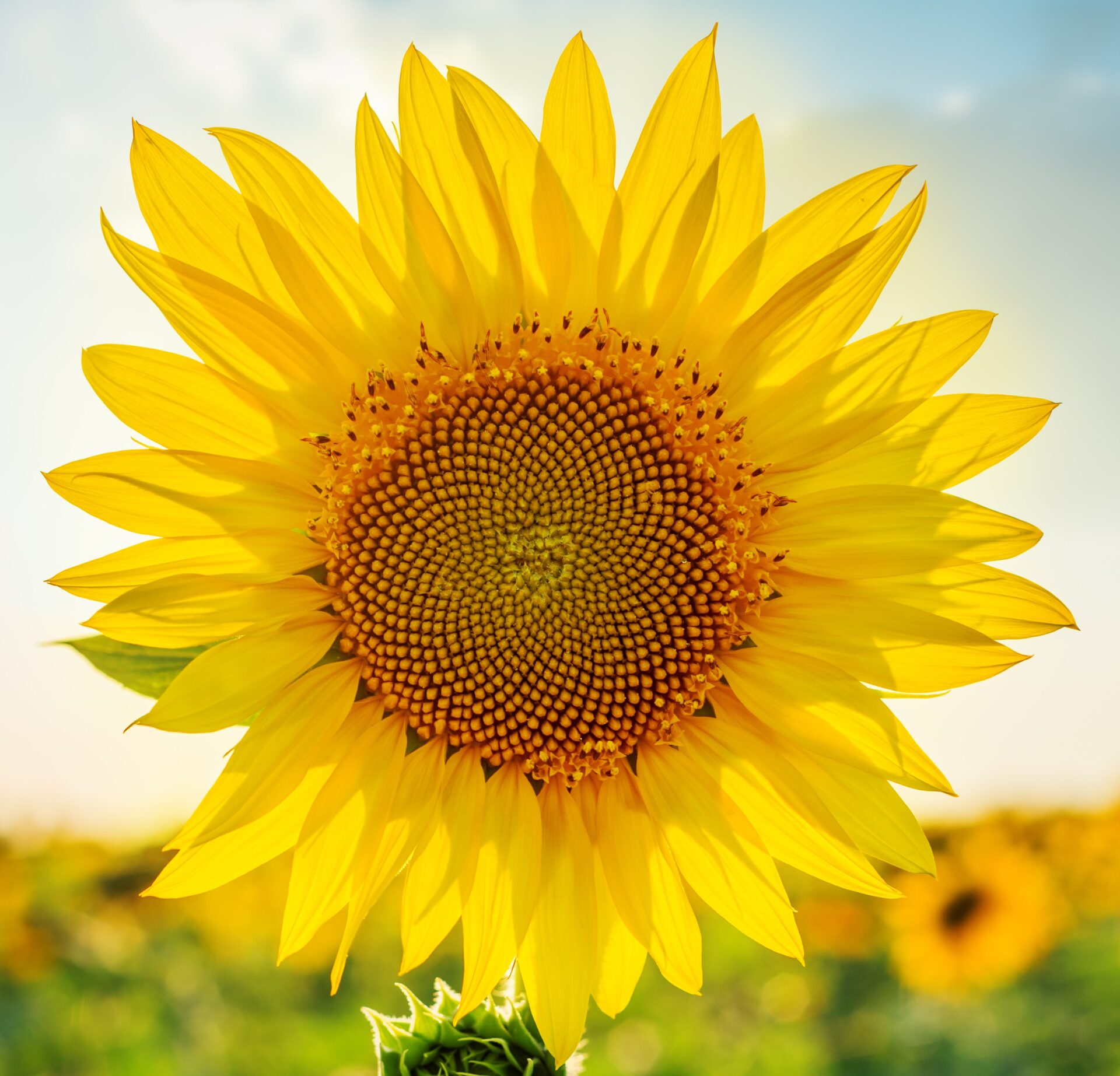a message from the Thích Nhất Hạnh Foundation
Published on
Thầy taught that when we injure our right hand, our left hand immediately moves to care for its sibling and offer support.
This teaching illustrates the practice of interbeing, in which we are intrinsically aware of our deep interconnectedness to all beings. We understand that because of interbeing, our fates are intimately bound together and when one of us suffers,
a message from the Thích Nhất Hạnh Foundation
Published on
Thầy taught that when we injure our right hand, our left hand immediately moves to care for its sibling and offer support.
This teaching illustrates the practice of interbeing, in which we are intrinsically aware of our deep interconnectedness to all beings. We understand that because of interbeing, our fates are intimately bound together and when one of us suffers, we all suffer.
At the same time, when one of us responds selflessly to suffering, we all benefit from that act of kindness. From this place, compassion and generosity can flow effortlessly.
Some of our monasteries are struggling right now, especially Plum Village Monastery in France and Blue Cliff Monastery in New York, US. They’re facing considerable challenges with aging infrastructure, inadequate housing, building code violations, and insufficient event space for monastics and guests, as well as other capital needs.
Because they vow to live simple, communal lives, our dear monks and nuns don’t generally give voice to these needs, however urgent. They put deep trust in the practice and are happy to get by on the bare minimum. At this moment, however, they are hurting hands in need of our helping hands.


As an organization committed to supporting our monastics and Thầy’s continuation, the Thích Nhất Hạnh Foundation is sharing this information with you.
It’s helpful to remember two things as we sit together with the question of how best to respond to this situation.
The first, which we wrote about in the last issue of The Mindfulness Bell, is the ancient Buddhist practice of dāna, a Sanskrit word meaning “generosity.” Dāna, the first of the Six Pāramitās, takes three forms: material gifts, the Dharma, and the gift of non-fear.
“These great givings are the practice of The Five Mindfulness Trainings,” Brother Pháp Hải said once in a Dharma talk. “By doing so one gives fearlessness, love, and kindness to all beings. If one human being can give security and freedom from fear to others by his behavior, that is the highest form of dāna, of generosity one can give.”
Our monastics share dāna with the lay community all year long through retreats and Days of Mindfulness, Dharma talks, and guided meditations. Many of these and other such offerings are available for free online.
For those fortunate to attend a monastery or off-site retreat in person, you’ll see that the monks and nuns also embody generosity of spirit in the way they engage with retreatants, move mindfully, invite the bell, eat their meals, and hold space for all the energies that can arise when retreatants gather to look deeply at their suffering.
The second thing to consider is that monasteries are not only retreat centers that provide a service to guests. They are homes, academies, sanctuaries, and laboratories where both aspiring and senior monastics rest and renew themselves, study, and devise fresh ways to share the Dharma, whether through books, teaching tours, online courses, or other means.

In his book Love Letter to the Earth, Thầy writes: “When we are in love with someone or something, there is no separation between ourselves and the person or thing we love. We do whatever we can for them and this brings us great joy and nourishment.”
Many of you gave generously to help Deer Park Monastery in California, US add living quarters in Solidity Hamlet. This will not only create more space for our monks but also allow Deer Park to house the (happily) growing number of aspirants and novices devoting themselves to monastic life.
You see, dāna isn’t only an act of generosity. It’s an act of love.
If you feel moved to help our monks and nuns create monasteries that are more safe, spacious, and welcoming, we invite you to consider making a donation.

